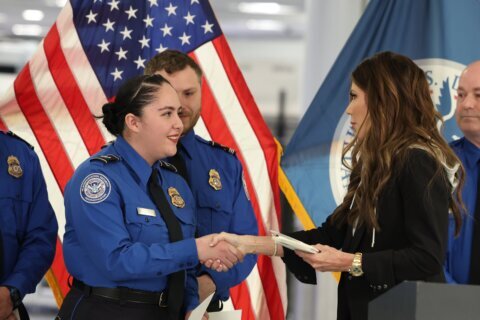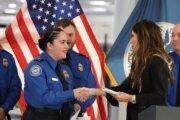WASHINGTON – How many shots were fired? Did one come from the grassy knoll?
Fifty years after the assassination of President John F. Kennedy there are claims that new evidence disproves a main conclusion by an investigative congressional panel that four shots were fired.
“The 1979 conclusion by the House Select Committee on Assassinations is simply wrong,” says Larry Sabato, who details his assertion in his newly released book: “The Kennedy Half Century: The Presidency, Assassination, and Lasting Legacy of John F. Kennedy.”
An audio recording of that fateful day in Dallas on Nov. 22, 1963 can’t prove four shots were fired because modern analysis reveals no gunfire is on the audio tape, says Sabato.
Investigators conclude only three shots could have been fired by assassin Lee Harvey Oswald in the estimated eight seconds of gunfire that also wounded Texas Gov. John Connally.
“We’ve not necessarily disproven the idea of a second shooter,” says Sabato. “But we’ve certainly blown apart forever the conclusion of the House Select Committee on Assassinations.”
The audio tape in question was recorded inside the headquarters of the Dallas Police Department. A device called a Dictabelt captured radio channels officers used the day of the assassination.
The Dallas Police motorcycle officer, whose stuck microphone allegedly captured sounds of gunfire that day, wasn’t even traveling with the motorcade. Audio evidence reveals the motorcycle was at least 2.5 miles away from the shooting and pulses interpreted as gunfire, in fact, were not, says Sabato.
Calling them “dramatic living history,” Sabato says the Dictabelt recordings will be released as an App next week. They detail routine conversations about a presidential visit that suddenly turned chaotic.
In addition to being an author and political analyst, Sabato is director of the University of Virginia Center for Politics.
Related to research detailed in his book, Sabato is offering a free online course about President Kennedy’s life, administration and legacy.
“No, you don’t have to take any tests,” Sabato jokes.
A PBS documentary based on Sabato’s book will be released in select cities in late October and nationwide in late November.
Related Story:
Follow @WTOP on Twitter.







